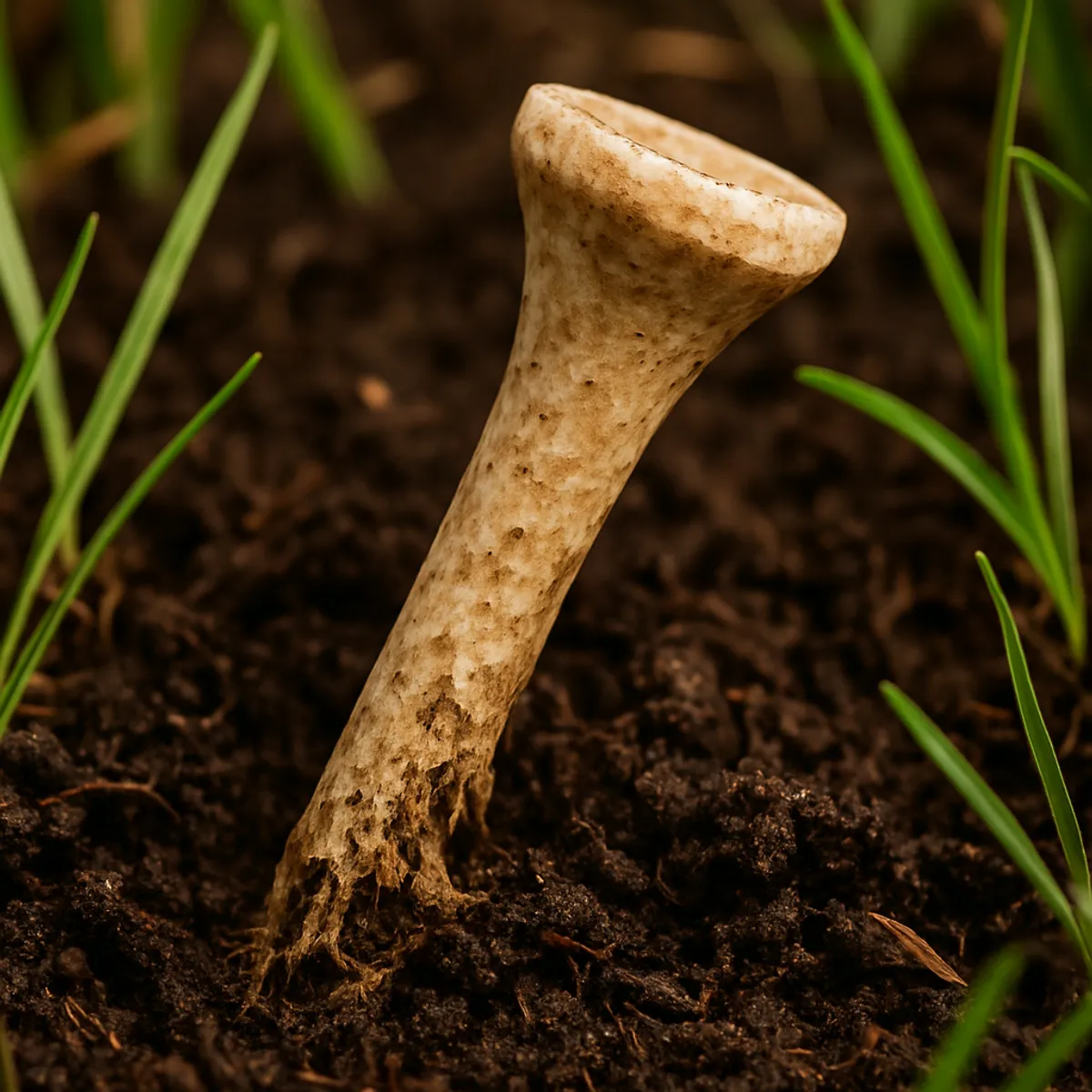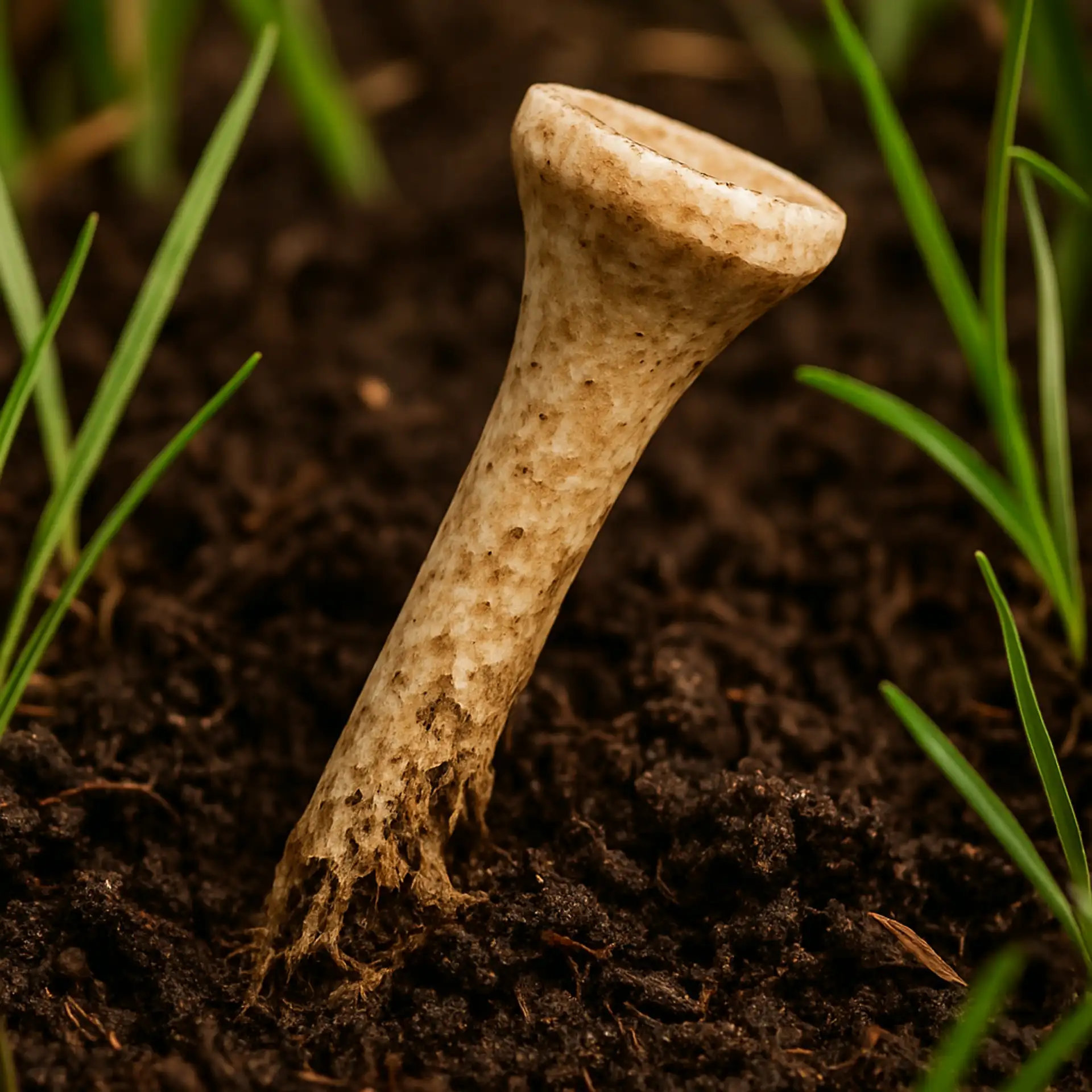SABER’s Golf Tee Pilot Shows How to Tee Up Sustainability

SABER’s Golf Tee Pilot Shows How to Tee Up Sustainability
Golf is a game of precision, passion, and pristine landscapes, but traditional plastic golf tees leave an environmental footprint that’s anything but par for the course. Each year, millions of non-biodegradable tees are lost or discarded on golf courses, breaking down into microplastics that pollute soil and waterways. SABER Chemical, Inc. is changing the game with our pilot project for the PGA Tour, introducing compostable golf tees made from bioplastics enhanced with our revolutionary core-shell particles (CCSPs). This initiative shows the world how to “tee up” sustainability without teeing off the environment.
The Problem with Plastic Tees
Standard golf tees, often made from petroleum-based plastics like polystyrene, are durable but environmentally harmful. When lost or broken, they fragment into microplastics—tiny particles that persist for centuries, contaminating ecosystems. These microplastics can end up in water sources, soil, and even the food chain, posing risks to wildlife and human health. Bioplastics like polylactic acid (PLA) offer a greener alternative but face a challenge: to make them tough enough for applications like golf tees, manufacturers often add non-biodegradable rubber fillers. As the PLA decomposes, these rubber particles remain, creating a new source of microplastic pollution.
SABER’s Solution: Compostable CCSPs
At SABER, we’ve developed a groundbreaking solution: compostable core-shell particles (CCSPs) made from glycerol, a byproduct of biodiesel production. Unlike traditional rubber additives, our CCSPs are designed to break down completely, leaving no microplastic residue. Here’s how they work in simple terms:
-
Water-Sensitive Breakdown: Our CCSPs are built using solketal acrylate, a molecule derived from glycerol and acetone. This molecule has special “water-loving” parts that attract moisture, like a sponge. When exposed to water in a compost pile or soil, these parts trigger the breakdown of the CCSPs, splitting them into smaller pieces. This process, detailed in our research (Biobased Core-Shell Polymers, Kuehl et al.), ensures the particles don’t linger in the environment.
-
Bacteria-Friendly Size: We engineer the rubber molecules in CCSPs to be short enough for bacteria to “eat.” In technical terms, we keep the molecular weight between crosslinks low (around 1200 Da or less), allowing microbes to break them down into harmless byproducts like carbon dioxide and water. This biodegradability, highlighted in our study, contrasts with traditional rubber fillers, which form long, indigestible chains that persist as microplastics.
These CCSPs blend seamlessly with PLA, boosting its toughness to over 200 J/m Izod impact strength—ten times stronger than plain PLA—making our golf tees durable enough to withstand the force of a driver swing. With certified compostability under ASTM D6400 on our roadmap, they are anticipated to decompose fully in about 10 weeks, leaving no trace behind.
The PGA Tour Pilot: A Hole-in-One for the Planet
Our planned pilot project with the PGA Tour, in collaboration with ISU and EvolveGolf, introduces these compostable golf tees to professional golf courses. Used by players and tested under real-world conditions, the tees showcase how sustainable materials can perform at the highest level without harming the environment. Unlike plastic tees that litter fairways, SABER’s tees naturally break down, ensuring golf courses remain pristine for players and wildlife alike.
This project builds on our research, which uses a water-based process called seeded semi-batch emulsion polymerization to create CCSPs. This method, described in our paper, is scalable, produces minimal volatile organic compounds (VOCs), and allows precise control over particle size (around 210 nm), ensuring consistent performance. By sourcing glycerol—a renewable, low-cost resource—we reduce reliance on petroleum, cutting carbon emissions and supporting a circular economy.
Interesting Facts from Our Research
- Glycerol Power: Our CCSPs are made from solketal acrylate, derived from glycerol, a byproduct so abundant it’s often considered waste. This makes our process not only sustainable but also cost-effective.
- Tough and Green: Our CCSPs increase PLA’s impact strength by an order of magnitude, making it tough enough for applications beyond golf tees, like packaging and medical devices, all while remaining compostable.
- Water-Based Innovation: We synthesize CCSPs in water, not harmful solvents, using a process that’s easily scalable for industrial production, minimizing environmental impact.
Join the Sustainability Swing
SABER’s planned golf tee pilot will do more than showcase a product—it will be a proof of concept that bioplastics can be high-performing, sustainable, and practical. By replacing non-biodegradable rubber with our compostable CCSPs, we’re showing the world how to play golf without leaving a mark on the planet. At SABER, we make bioplastics BETTER, and we invite you to join us in driving sustainability forward.
